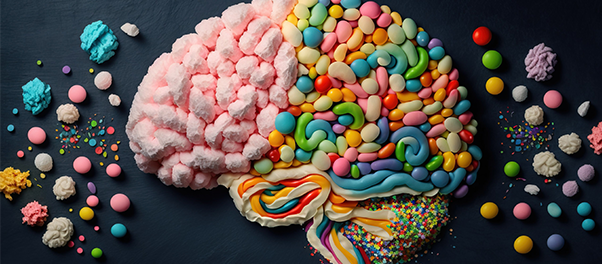Excessive Sugar
The World Health Organization (WHO) recommends that added sugars should make up less than 10% of your total daily energy intake. A further reduction to below 5% of total daily energy intake is suggested for additional health benefits. An average adult consumes about 2,000 calories daily, translating to no more than 50 grams (around 12 teaspoons) of added sugars daily if following the 10% guideline.
It's important to note that these recommendations pertain to added sugars, which are sugars added to foods during processing or preparation. Natural sugars in whole fruits and dairy products are paired with beneficial nutrients and dietary fiber. Because of that, they lead to lower glucose spikes than added sugars in sugary snacks, beverages, and processed foods. Additionally, individual health conditions, activity levels, and personal dietary needs influence what is considered excessive for a specific person. For the most accurate information for each person, it's a good idea to consult with a registered dietitian or healthcare professional.
Sugar's Influence on Mood: A Delicate Balance
Mood, an intricate symphony orchestrated by neurotransmitters, can influence our dietary choices. Excessive sugar consumption can disrupt this symphony, leading to fluctuations between euphoria and irritability. Mental health professionals are well-positioned to integrate behavioral interventions to stabilize mood. Techniques such as mindfulness can help individuals manage emotional responses. At the same time, mindful eating practices foster awareness of sugar intake and emotional triggers, enabling clients to make conscious dietary choices that promote stable mood states.
Behavioral Manifestations: Sugar's Unseen Conductor
Cognition in the Sugar Labyrinth
The Unlikely Link: Sugar and Criminality
A narrative that piques interest is the association between excessive sugar consumption and criminal behavior. While no specific percentages can be definitively attributed to this link, researchers have explored the concept that extreme fluctuations in blood sugar, resulting from consuming high amounts of sugary foods, may contribute to shifts in mood and energy levels, which could influence impulsive behaviors.
Sugar's potential to disrupt neurotransmitter balance and influence mood swings could indirectly impact decision-making, potentially contributing to impulsive actions. Through behavioral interventions, mental health professionals can mitigate the potential link between sugar consumption and impulsive behaviors. Dialectical Behavior Therapy (DBT) can enhance emotional regulation and distress tolerance. By equipping clients with skills to manage emotional upheavals, mental health professionals contribute to reducing the risk of impulsive actions influenced by sugar-induced mood swings.





















